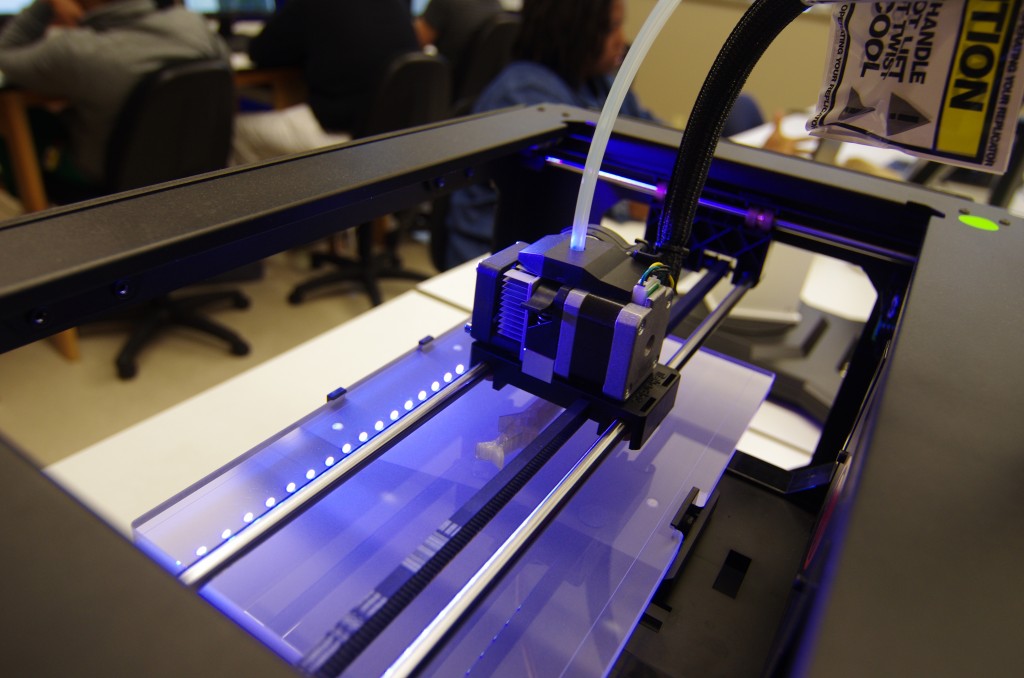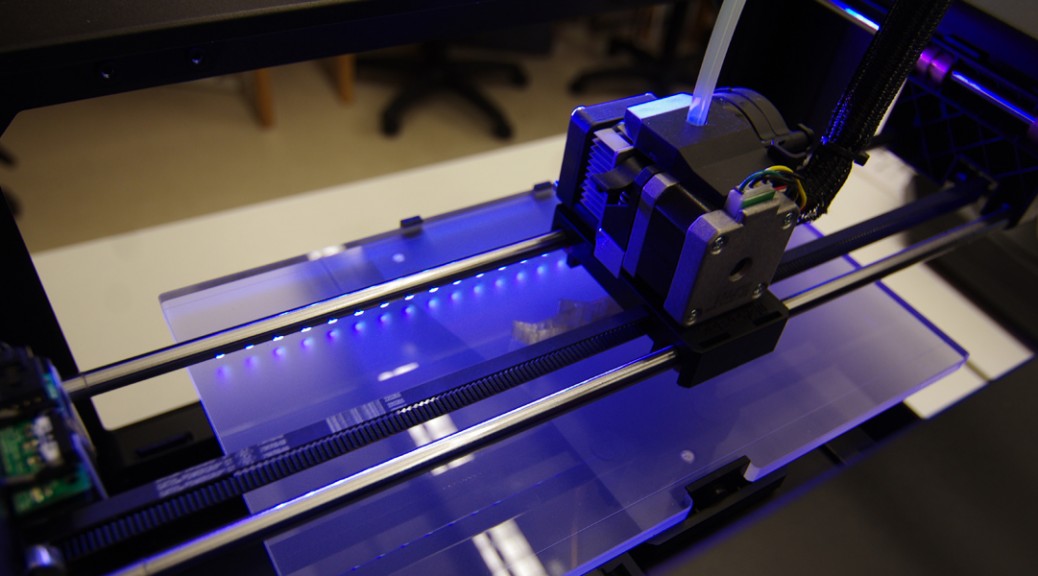
NASHVILLE, Tenn. (TSU News Service) – It sounds like something out of a science fiction movie. Researchers are using the latest technology to create artificial organs, prosthetics, jewelry and even automobiles…all with the help of a three-dimensional printer.
Now researchers at Tennessee State University are looking for ways to use this state-of-the-art technology to print everything from high-resolution models to detailed prototypes.
Dr. George Smith, assistant professor of Landscape Architecture and Extension Specialist in the College of Agriculture, Human and Natural Sciences, is currently developing new research projects and educational course content to take advantage of the MakerBot Replicator 2 three-dimensional printer. The equipment was purchased with funds from the U.S. Department of Agriculture, as part of a three-year Capacity Building Grant to investigate the impacts of urbanization on rural communities and agriculture operations in Williamson County, Tennessee.
Smith, who holds degrees in Regional Planning and Environmental Design & Rural Development, has high hopes for the potential of 3-D printers and other new technologies embraced by the college.
“3-D printers and other emerging technologies are evolving as powerful research and educational tools,” Smith said. “They have numerous benefits to both students and researchers across many disciplines, including engineering, agriculture, math, biology, geology, health science, and the arts.”
The 3-D printer, which uses a renewable, nontoxic bioplastic made from corn, includes sophisticated printing software that works in tandem with design tools to allow users to produce high-resolution prototypes and models up to 410 cubic inches. According to Smith, this technology will empower TSU students, and foster improved learning and engagement.
“3-D printing allows students to visually comprehend a concept or theory by creating a physical, three-dimensional translation,” Smith said. “Most importantly, this allows us to physically interact with these concepts, manipulating working parts and making accurate adjustments so we can continuously improve on the original.”
Not only is the goal to develop educational content based on 3-D printing applications, said Smith, but the technology will also be used to deliver workshops beginning January 2015 for stakeholders in Williamson County. The workshops will train participants on the impacts of urbanization, including increased flooding and degradation of soils, and water quality in the county.
“A few of the participants will have training in mapping, design, construction and terraforming for remediation purposes,” added Smith. “However, the 3D printers will facilitate this educational process regardless of past training in these areas.”
Tennessee State University
3500 John Merritt Boulevard
Nashville, Tennessee 37209
615.963.5331
About Tennessee State University
With more than 9,000 students, Tennessee State University is Nashville’s only public university, and is a comprehensive, urban, co-educational, land-grant university offering 42 undergraduate, 24 graduate and seven doctoral programs. TSU has earned a top 20 ranking for Historically Black Colleges and Universities according to U.S. News and World Report, and rated as one of the top universities in the country by Washington Monthly for social mobility, research and community service. Founded in 1912, Tennessee State University celebrated 100 years in Nashville during 2012. Visit the University online at tnstate.edu.
